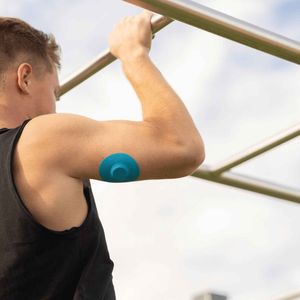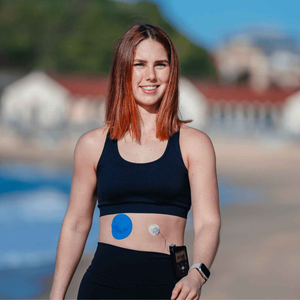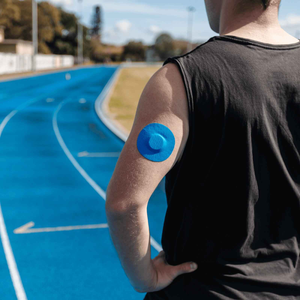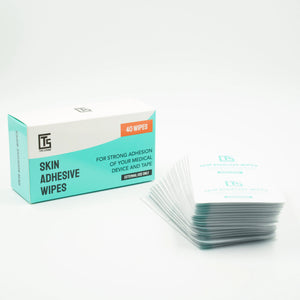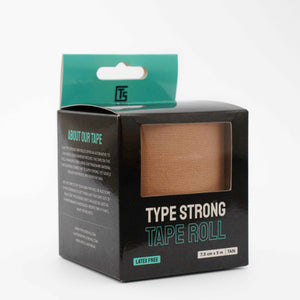Ever met someone who wears the same CGM brand, same patch, with the same prep routine... But they've never had an issue. Meanwhile, you’re stuck dealing with redness, bumps, or itching every time. What gives?
Here’s the truth - not all skin reacts the same way to CGM patches. And no, it’s not your imagination. The difference could come down to one thing - your skin type.
Let’s unpack why that matters, what reactions to look out for, and how to choose the right patch strategy for your skin.
The 4 Common Skin Types (and How They React to Adhesives)
Each skin type has its own quirks. Some handle adhesives like a champ. Others... not so much.
|
Skin Type |
How It Reacts to Patches |
Watch-Outs |
|
Oily |
Adhesives may slip or lift early |
Poor adhesion, patch peeling |
|
Dry |
Skin barrier is weaker - prone to irritation or flaking |
Redness, tightness, cracking |
|
Sensitive |
Reacts to even mild ingredients, especially adhesives or latex |
Itching, rash, prolonged redness |
|
Combination |
Mixed results - good adhesion in some areas, irritation in others |
Inconsistent performance |
If you’re not sure what type you are, here’s a quick cheat sheet:
- Oily skin tends to look shiny and may break out more
- Dry skin often feels tight, especially after washing
- Sensitive skin reacts easily to new products
- Combination skin may be oily in places and dry in others
Why the Same Patch Doesn’t Work for Everyone
Even the most popular CGM patches can perform differently depending on your skin. Here’s why:
- Natural skin oils - can weaken adhesive hold
- Moisture levels - dry or flaky skin may struggle with patch grip
- Barrier issues - eczema, sunburn or broken skin can increase irritation
- Sweat and movement - especially in heat or active settings (see Why Your CGM Sensor Needs Extra Protection in Summer)
“Different skin types can influence how adhesives interact with the skin” - Mayo Clinic

Tailored Tips for Each Skin Type
-
Oily Skin
- Wash skin with an oil-free cleanser
- Avoid moisturisers or barrier sprays before patching
- See our skin prep tips to make patches last
- Choose extra-strong options like our Dexcom G7 patches
-
Dry Skin
- Gently exfoliate before applying
- Moisturise the night before, not just before patching
-
Sensitive Skin
- Always patch-test a new product
- Avoid alcohol wipes or harsh prep sprays
- See Dexcom Patches That Won’t Irritate Sensitive Skin
- Learn to spot and manage reactions early
-
Combination Skin
- Use mid-friction areas like the back of the arm or upper thigh
- Prep only where oily
- Unsure if you even need a patch? Read Do You Really Need a Patch for Your CGM?
Universal Patch Tips That Help Everyone
- Rotate patch sites regularly
- Allow your skin to rest between applications
- Monitor for patch lift at the edges
- Follow How to Prep Your Skin for Patches
- If you're patching regularly, consider the Bundle Advantage
Want to go deeper on patch performance? These insights from 5 Signs Your CGM Patch Is Too Weak are worth checking out.
Final Thought
Your skin type isn’t a problem - it’s a puzzle. But once you find the patch that fits, everything changes.
Our Build Your Own Patch Bundle lets you trial different adhesives, shapes and styles to discover what suits your skin best.
Ready to personalise your patch experience? Build your custom bundle now.
